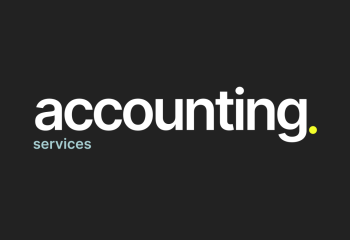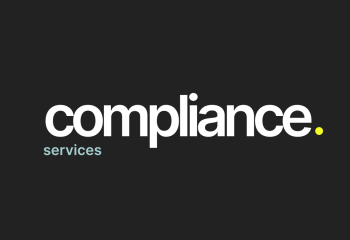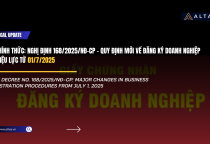NAVIGATING COMPLEXITIES OF M&A IN VIETNAM: THE ROLE OF TAX & FINANCIAL DUE DILIGENCE
Views: 1390
(10).png)
Recently, ALTAS Corporation acted as the financial advisor to E&D Group throughout the successful acquisition of 95% shares in a Vietnamese garment company highlights the critical role of Tax & Financial due diligence in cross-border transactions.
While thorough financial and tax due diligence are paramount, it's crucial for investors to be aware of broader due diligence pitfalls, particularly in the legal realm, which can significantly impact a deal's success and financial health. here>
A/ Common Due Diligence Pitfalls to Watch For
When conducting legal due diligence in Vietnam, several common pitfalls can lead to financial losses, regulatory penalties, or failed transactions. Understanding and avoiding common pitfalls is crucial for ensuring an investment is legally compliant, financially sound, and aligned with Vietnam’s complex legal framework.
Here are some common legal due diligence pitfalls:
-
Incomplete Regulatory Compliance Checks: A common pitfall is failing to conduct a thorough review of regulatory compliance. Vietnam's legal framework is dynamic and varies by sector, requiring investors to stay updated on regulations, as even minor oversights can cause penalties or delays.
-
Licensing Oversights: Investors often fail to verify that the target company holds valid and up-to-date licenses for its operations, which can result in legal risks and project delays.
-
Foreign Investment Restrictions: Ignoring foreign ownership caps in sectors such as film production, logistics, telecommunications, or banking may invalidate the investment structure or lead to regulatory penalties.
-
Inadequate Financial Due Diligence: Ignoring Hidden Liabilities Overlooking hidden liabilities in financial statements is a critical mistake that can lead to unanticipated financial risks. Companies may underreport tax liabilities, debts, or pending litigation, significantly affecting valuation. The role of financial data in legal due diligence is critical for ensuring the viability of a transaction, helping to identify hidden risks and uncover liabilities.
-
Unreported Debts: Companies may not fully disclose outstanding loans or debts that will transfer to the buyer.
-
Tax Non-Compliance: Failing to uncover unpaid taxes or pending tax disputes can expose investors to unexpected financial obligations. This includes issues with corporate income tax (CIT), value-added tax (VAT), withholding taxes, or non-compliance with transfer pricing regulations for related-party transactions. For cross-border deals, neglecting Double Taxation Agreements (DTAs) can also lead to issues. A thorough review of financial data related to tax compliance ensures investors avoid unexpected financial penalties and align with local tax regulations.
-
Hidden Financial Risks from Asset and Liability Valuation: Failing to ensure all tangible and intangible assets are properly accounted for, or that liabilities like outstanding debts or legal claims are fully disclosed, can lead to problems like undervalued real estate or unregistered intellectual property. Discrepancies in financial statements, such as overstated revenue due to aggressive accounting practices, can also be a pitfall. Analyzing financial statements, including balance sheets, income statements, and cash flow statements, is crucial for assessing financial stability and profitability, and ensuring compliance with Vietnamese Accounting Standards (VAS).
-
Intellectual Property (IP) Oversights: Ignoring IP Protection Many investors fail to verify the status of a target company’s IP, risking post-transaction discovery that trademarks, patents, or copyrights are not legally protected or are subject to disputes.
-
Unregistered IP: Failing to register patents, trademarks, or copyrights leaves the company vulnerable to IP infringement.
-
IP Disputes: Overlooking ongoing IP disputes can lead to future legal challenges and losses.
-
Skipping Land-Use and Zoning Due Diligence In sectors like real estate and renewable energy, failing to conduct thorough land-use due diligence can result in delays, legal disputes, or the nullification of an investment.
-
Invalid Land-Use Rights: Investors often fail to confirm that the land-use rights of the target company are legally valid and transferable.
-
Zoning Restrictions: Overlooking zoning laws can result in projects being suspended or restricted.
-
Contractual Oversights: Failing to Review Key Agreements Many investors overlook the importance of thorough contractual due diligence, which involves reviewing key agreements like supplier contracts, employment agreements, and lease agreements to identify risks such as unfavorable terms, hidden clauses, or unenforceable provisions.
-
Change-of-Control Clauses: In M&A deals, these clauses may allow counterparties to terminate agreements when the company is acquired.
-
Penalty Provisions: Hidden penalty provisions in contracts can impose financial burdens if not properly addressed.
B/ What and How Financial Criteria To Be Evaluated To Understand A Target Company's Financial Health?
To understand a target company's financial health, historical financial analysis, quality of earnings assessments, and working capital evaluations are crucial steps during financial due diligence. Here's how each is evaluated:
1/ Historical Financial Analysis
The first aspect of financial due diligence involves a thorough review of the target company's historical financial statements. This includes:
-
Income statements, balance sheets, and cash flow statements, along with their notes. This helps in understanding how the business generates revenue, its main costs and margins, how it manages its assets and liabilities, and how it generates and uses cash.
-
Identifying significant trends, fluctuations, or anomalies in the financial performance and position of the business, and understanding the reasons behind them. This evaluation helps assess the historical profitability, growth, and stability of the company, as well as its accounting policies and practices.
-
Assessing the reliability of financial statements and identifying inconsistencies. This involves scrutinizing revenue recognition policies, cost allocations, and non-recurring items. For instance, discrepancies in the income statement, such as overstated revenue due to aggressive accounting practices, can be uncovered.
-
Verifying compliance with relevant accounting standards, such as Vietnamese Accounting Standards (VAS), is essential to ensure the financial statements reveal the true financial picture of the company and reduce the risk of financial misrepresentation.
-
Analyzing cash flow statements is critical to ensure the company has sufficient liquidity to meet its short-term obligations and to avoid insolvency risks.
2/ Quality of Earnings (QoE) Assessments
The second key aspect is to assess the quality of earnings, which refers to how sustainable, predictable, and reliable the company's earnings are. This evaluation involves:
-
Adjusting reported earnings for any non-recurring, exceptional, or discretionary items. These can include one-off gains or losses, restructuring costs, impairments, or management bonuses.
-
Normalizing the earnings for any non-operational or non-market factors, such as changes in accounting standards, exchange rates, or inflation. This process helps determine the normalized or adjusted EBITDA (earnings before interest, taxes, depreciation, and amortization), which is a common metric for valuation and comparison.
-
Dissecting earnings by removing one-offs, discretionary expenses, and aggressive accounting practices helps uncover hidden issues.
-
Historical data analysis is crucial as it can reveal more than just trends; it exposes potential earnings manipulation, hidden risks, and the true sustainability of performance. A strong EBITDA with weak cash flow can signal underlying earnings problems.
3/ Working Capital Evaluation
The third aspect of financial due diligence focuses on analyzing the working capital of the target company, which is defined as the difference between its current assets and current liabilities. This evaluation helps understand:
-
How the business manages its inventory, receivables, payables, and other short-term items, and how these affect its cash flow and liquidity.
-
The net working capital (NWC), which is the amount of working capital required to run the business on a normal basis. This can help estimate potential working capital adjustments needed at closing.
-
Historical trends in receivables, payables, and inventory should be examined.
-
Rising Days Sales Outstanding (DSO) or slow-moving inventory can signal underlying cash flow problems.
-
It is important to ensure revenue growth isn't artificially inflated by aggressive invoicing or unbilled receivables.
-
Payment deferrals or stretched payables may also indicate liquidity stress. Seasonality and cyclical fluctuations should also be factored into any assessment.
C/ HOW ALTAS CAN ASSIST YOU
ALTAS LAW is uniquely positioned to assist your business in navigating these complex administrative reforms. We offer a comprehensive suite of legal and business services designed to provide seamless support during this transition period:
-
Accounting and Tax Services: We also offer accounting and tax services to help your business manage the financial implications of these reforms, including tax planning, reporting, and compliance.
-
Licensing & Regulatory Compliance: We will meticulously review your existing licenses and permits, advise on necessary amendments or renewals, and guide you through the process of obtaining any new approvals. Our team will also ensure your compliance with all relevant regulatory changes.
Please feel free to reach us via email contact@altas.vn to discuss your specific concerns and explore how we can navigate these reforms successfully.
---
Prepared by:
Lawyer Partner at ALTAS Law - Mr. Luong Van Chuong (Chris) & Managing Director at ALTAS Accounting - Nguyen Nhac Thien An
Date: July 31, 2025














(10).png)















